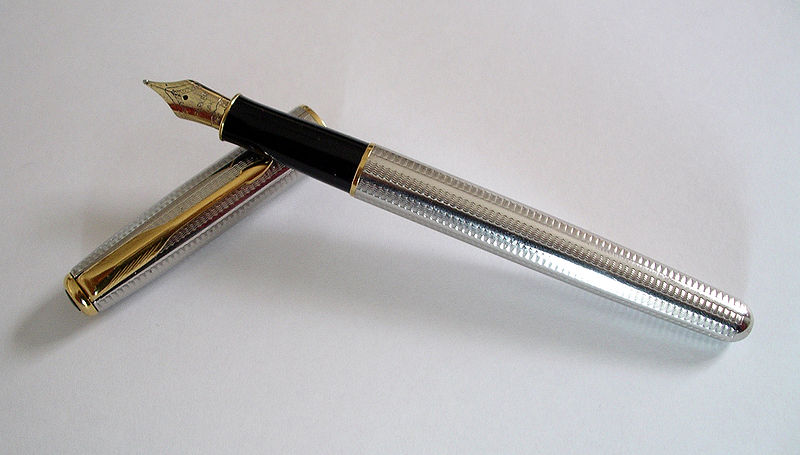Bradley Holmes is the self-proclaimed father of the in-home semen-detection industry. His Infidelity Test Kit, called Checkmate, sells for $39 per unit, and he claims to have sold thousands of them each year since he began marketing them in 1999. His product, which uses a simple test to detect the presence of acid phosphatase–an enzyme found in large quantities in male semen–is carried by distributors in foreign countries around the globe. If you suspect your significant other is cheating on you, Holmes’ kit allows you to quickly determine if that stain on their undies, or blue dress, is what you think it is.
“I make $1,000 a day without even trying,” chuckles Holmes.
So why is he so miserable? Well, like so many fathers, he is disappointed by his offspring—in part because they are giving him competition.
“Ten years ago, we were the only company on earth selling home-based kits,” says Holmes. “There were only a few DNA labs around the country.” Now there are at least a half-dozen other companies offering home-based semen-detection kits. The number of Web sites and DNA testing labs offering the service is growing each year, he says.
And by all accounts, this is not a development that Holmes has responded to with quiet grace:
“I gotta tell you, Steve, you’re a fucking sicko, man. You’re a lowlife fucking liar. And I’ll fucking kill you one of these days, you son of a bitch. Take note of that and send it to the cops. It might be 20 years from now. It might be next week. But I’m gonna fucking kill you, asshole.”
That’s part of a voice-mail message Holmes left for one competitor last October. Asked about the message, Holmes is unapologetic: “So what? I’d club that guy over the head like a fish if I could, but I’m an upstanding citizen.”
To hear Holmes tell it, there are very few sperm-detection-kit-mongers who are who they claim to be, or who offer products that accomplish what they claim to. He also maintains that many are violating his patent. After 10 years of working seven days a week, he says, he spends much of his time defending himself from the hucksters his product helped spawn. Checkmate, he says, exists on top of the sperm-detection heap—but with that status comes a giant target on his back, and the aftermath has left him an “aggravated, agitated, pissed-off person.”
One of Holmes’ Web sites, whatsreallygoingon.com, is dedicated almost entirely to refuting what he says are the false claims made against his product.
“The unrestricted nature of the Internet has shattered my life,” he says. “I should be the happiest person on earth…and here I am the one who did everything right.”
There are others in the industry who disagree.
“Brad Holmes is very, very ill,” says Steve Calvert, the Technical Manager of Semen and Sperm Detection Inc. (SSDI), a DNA-testing lab in Euless, Texas—and the intended recipient of the threatening phone message excerpted above.
Since 2003, Calvert and Holmes have been battling over a host of issues, with each accusing the other of unethical business practices.
Calvert, an engineer who got into sperm detection after a slowdown in the aerospace industry, says he first began receiving e-mails from Holmes claiming SSDI’s site infringed on the trademarked phrase “Infidelity Test Kit.”
According to records at the United States Patent and Trademark Office, Holmes did not actually own the phrase at that time (and has never successfully trademarked it). The mark was applied for in 2000 by a North Carolina couple, Tracy and Abulkasim Soussi, but later abandoned. Holmes applied for it the next year, and later sued the couple, alleging that they had purchased a Checkmate kit and then created their own, borrowing heavily from his brochures and materials. The Soussis denied his assertions. The case was later settled out of court.
Holmes says he contacted SSDI and asked Calvert—politely, he says—to remove any use of the phrase on his site, semen-detection.com. Calvert says he received his first communication from Holmes in February 2003, and it was apparently more hostile than Holmes claims.
From the e-mail: “We see by your liberal use of the term ‘Infidelity Kit’ on your site that you have absolutely no interest in fair business practices’ [sic] and frankly we are very angry…[I]f the mark ‘Infidelity Test Kit’ is eventually warded to us we will have no mercy on the people who screwed us.”
“This is Brad’s MO,” says Calvert. “It’s been going on for years now. In his mind, he’s developed the perfect system, and so he harasses everyone else who tries to get into the business.”
In a motion to dismiss Holmes’ suit against them, the Soussis also complained that Holmes had left a number of badgering phone messages.
Others in the industry tell a similar story. Many contacted by Seattle Weekly would not speak on the record for fear of provoking Holmes to renew contact with them. One who would speak on the record, Tom Arriola of Crimescene.com, says that Holmes began leaving harassing voice mails on his answering service not long after Arriola began offering his own semen-detection kit in 2002.
“He called almost immediately threatening me with a lawsuit,” says Arriola. “I began to ignore it after a while, but it’s ridiculous that someone thinks that they can get away with this.”
For his part, Holmes doesn’t deny using colorful language in his business dealings, but believes his actions are justified.
“If you’re a liar, I’m not just going to take it,” he explains. “Nearly every DNA lab in the country is copying us, and nearly all are infringing upon my trademark. That’s why people can’t stand me. I’m a lightning rod for the truth.”
Holmes canceled a scheduled face-to-face interview with Seattle Weekly, but did speak several times by phone. The address listed on his articles of incorporation is a P.O. box in downtown Seattle. On the topic of how he, a man with admittedly no background in forensic science, developed a process that in 2004 received a patent from the U.S. Patent and Trademark Office, Holmes gets coy, offering only that he’s “a pretty smart guy.”
Others in the industry aren’t nearly as convinced of Holmes’ genius.
“Holmes’ test is just one of many methods for sperm detection,” says Arriola. “He was the first one to put a kit out into the public realm, and he’s tried to enhance it with patents and trademarks, but this technology has been used by law-enforcement agencies for years.”
Dr. Kristen Skogerboe, assistant professor of chemistry at Seattle University, confirms that claim.
“The acid phosphatase test has been used at crime scenes for decades now,” she says. “[Acid phosphatase] is a presumptive test—frequently used in rape kits and in other situations where the police can assume the presence of semen.”
Presumptive or not, by being early to the consumer market, Holmes’ home-based version of the acid phosphatase test enjoys great name recognition.
“We sell out of his product all the time,” says Bob Jansen, owner of Spy Supply in Tacoma. “Everything else out there is just an imitation.”
Much of the debate between Calvert and Holmes, and Holmes and everybody else, revolves around whether the acid phosphatase test—and by extension Checkmate—is the most definitive test on the market. Calvert acknowledges that acid phophatase tests can and do work—just not all the time. On semen-detection.com there are numerous pictures of what he says are examples of failed acid phosphatase tests—in which a false-positive result was given for semen, or semen was present but not detected. Acid phosphatase is found in a number of bodily fluids besides semen, and may not be present in sufficient quantities in a given semen sample to be picked up by the test.
Calvert’s own home kit detects semen via PSA, or prostate-specific antigen, a protein produced by the prostate which, according to Skogerboe, is used by forensic scientists as a more definitive test for the presence of semen.
Holmes claims that his company has never received a request for a refund on account of the product’s performance, and calls Calvert a pathological liar.
“This is why I don’t sleep,” says Holmes. “Every day I’m just waiting to see what lie [Calvert’s] going to put on his Web site next.”
From 2003 to 2008, Holmes left dozens of phone messages with SSDI. Copies of those messages, supplied to Seattle Weekly, reveal an irate and cursing Holmes shouting combinations of epithets at Calvert and others associated with SSDI, and either accusing him of fabricating information about Checkmate or stealing his online content.
Calvert says he has not once replied to either Holmes’ e-mails or voice mails. Holmes claims otherwise, but as of press time had not provided the e-mail in which he says Calvert threatened him with bodily harm. Nor does Holmes deny leaving any of the messages, e-mail or otherwise, with SSDI.
“Steve Calvert is the one driving this bus, and he drove it off a cliff a long time ago,” says Holmes.
Calvert maintains that all the information on his Web site is intended to promote his own product or point out “legitimate” deficiencies in others. It doesn’t reference Checkmate or Holmes by name.
“It’s called competition,” says Calvert. “To not point that out is ludicrous.”
Calvert claims he forwarded Holmes’ threatening message from last October to his local police department and to the FBI. A spokesperson for the FBI in Seattle wouldn’t say whether Holmes is or has ever been under investigation. Holmes, in turn, claims the FBI contacted him to discuss wrongdoing by Calvert.
“I’m not harassing him, but he will turn it around to make it such,” says Calvert. “Every day he comes to my Web site. He’s tried to get our Web host to shut us down. He calls our distributors. I don’t care what Brad does on his own site. So who is stalking who?”
Both Holmes and Calvert claim that all they want is to conduct business in peace. Holmes’ dream: to see a Checkmate kit in every mainstream retailer in America.
“I haven’t done anything wrong to anyone,” says Holmes. “I want to be able to grow my company free of the negative advertising. I want to be free of all this.”








